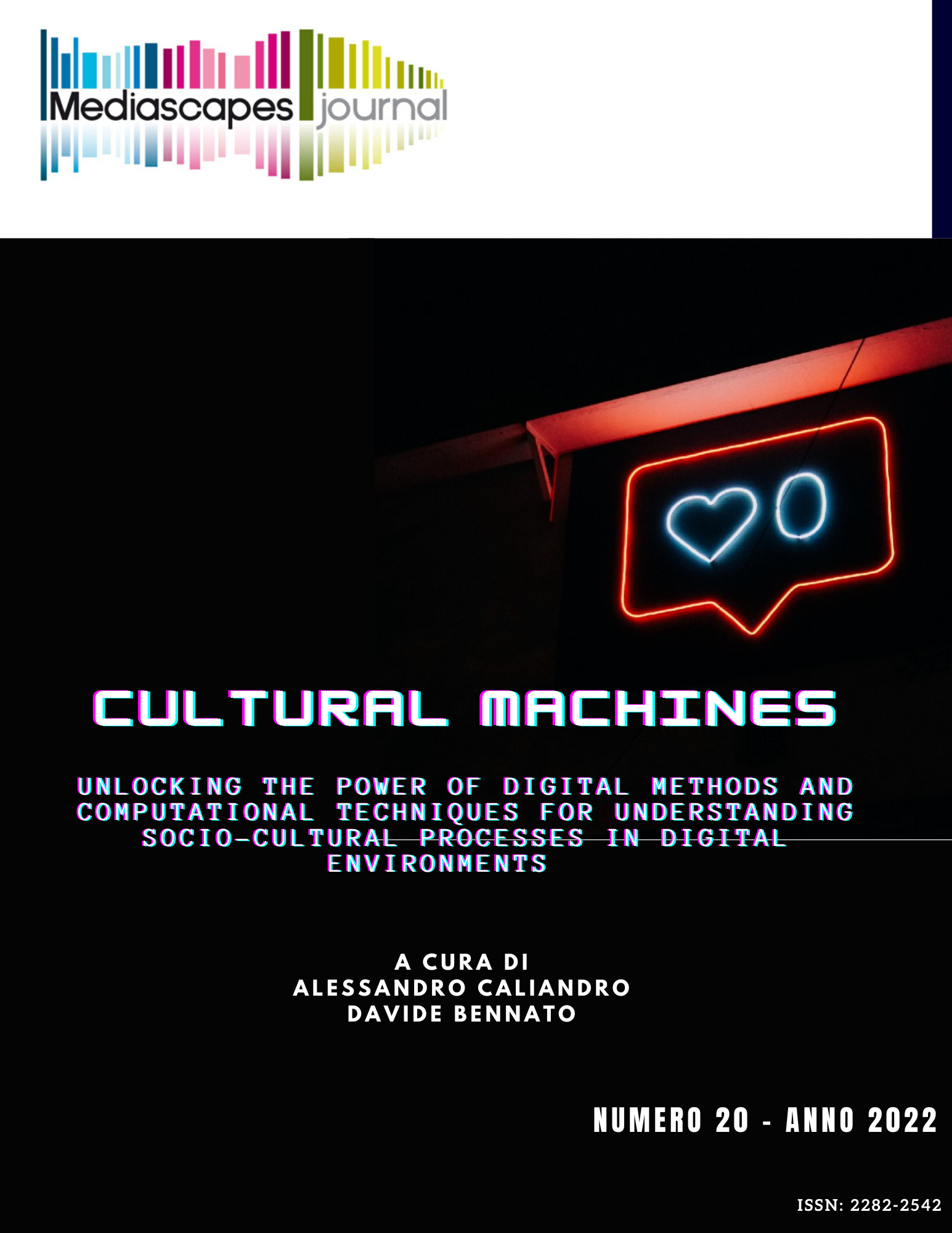Platformization hate
Patterns and algorithmic bias of verbal violence on social media
Parole chiave:
Verbal violence, Hate speech, Algorithms, Supervised classificationAbstract
The paper presented is an analysis of the Hate Speech of tweets during the implementation of the EU's Digital Covid Certificate policy. The work starts from the assumption that Hate Speech is an often "submerged" phenomenon because it also includes some forms recognized as "incivility." Therefore, there are two research questions: the first asks what are the new categories of "hate" that emerge in the EU Digital Covid Certificate policy debate, while the second questions the methodological implications on the use of algorithms in detecting the phenomenon. The results we arrived at are, from a substantive point of view, of good interest because they show us how it is possible to witness a new kind of online hatred. However, the disagreements we encountered in constructing an unambiguous definition of HS for the supervised algorithm leave open many questions. Among them is the fact that the differences between HS, incivility, and even freedom of expression can be very small. In the context of large social platforms, where the criteria of the algorithm are not always explicit and are also the policies of the platform, this could be a problem.
##submission.downloads##
Pubblicato
Come citare
Fascicolo
Sezione
Licenza

TQuesto lavoro è fornito con la licenza Creative Commons Attribuzione 4.0 Internazionale.
Gli autori che pubblicano su questa rivista accettano le seguenti condizioni:
- Gli autori mantengono i diritti sulla loro opera e cedono alla rivista il diritto di prima pubblicazione dell'opera, contemporaneamente licenziata sotto una Licenza Creative Commons - Attribuzione che permette ad altri di condividere l'opera indicando la paternità intellettuale e la prima pubblicazione su questa rivista.
- Gli autori possono aderire ad altri accordi di licenza non esclusiva per la distribuzione della versione dell'opera pubblicata (es. depositarla in un archivio istituzionale o pubblicarla in una monografia), a patto di indicare che la prima pubblicazione è avvenuta su questa rivista.
- Gli autori possono diffondere la loro opera online (es. in repository istituzionali o nel loro sito web) prima e durante il processo di submission, poiché può portare a scambi produttivi e aumentare le citazioni dell'opera pubblicata (Vedi The Effect of Open Access).


